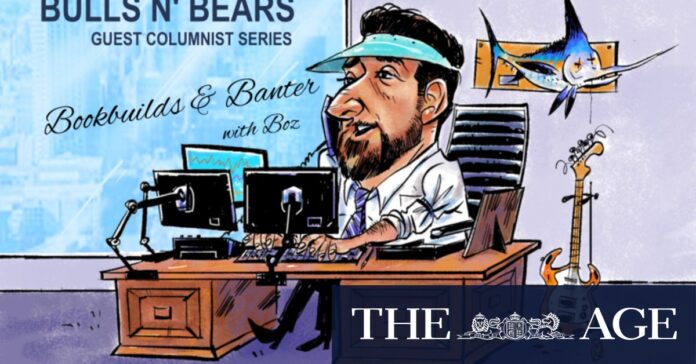[ad_1]
The basic question posed in the book around this rule is “Do you want a garden bed full of flowers or weeds???”
All too often, investors will hold onto the losers on a wing and a prayer that they will eventually head skywards whilst selling the winners at the first sign of a rising graph.
Rule No. 2: Investments can underperform longer than you think
“The chap who is compelled to lug a corpse a year or two always loses more than the original cost of the deceased; he is sure to find himself tied up with it when some really good things come his way.”
The book makes the case that opportunity cost is at the heart of every investment. When you review any investment, remind yourself of what your money could be earning elsewhere – especially if you are earning a minimal return or in a loss position.
The seasoned investor needs to be able to demonstrate the resolve to switch investments or asset classes when markets change. Over the last two years for example, many investors have moved into cash/ fixed interest given the increased returns in this asset class (for the first time in over a decade) with minimal capital risk.
Needless to say, knowing when to make changes is the difference between good and great investors. The risk of holding onto the wrong investment for the long term though means that you not only limit your performance, you also miss out on making profits elsewhere.
Rule No. 3: Every great party ends with a hangover
The basics of this rule are the bigger the party, the bigger the hangover. Some of the big runners can also experience the biggest falls.
All market commentators quote average returns over a certain period. For example, the All Ord’s has returned approximately 9 per cent per annum over the last 10 years. Berkshire Hathaway, the great US conglomerate led by legendary investor Warren Buffett has returned close to 10% per annum over the last 20 years alone.
What that tells us, is that on average they have made a consistent return for investors. By definition, an average means that some years will underperform and other years will naturally outperform.
Rule No. 4: Why am I holding this investment?
It is an excellent practice to ask this question of every investment you have. For example:
- Q. Why do I hold that investment property?
- A. I have capital growth, negative gearing and income
- Q. Why do I keep X dollars in a term deposit?
- A. It is a low return but has little risk and gives me peace of mind in case I need access to funds
- Q. Why am I holding XYZ share?
- A. It is performing well and management is delivering on strategy or… well you get the picture.
Often it is the 1 per cent changes that make all the difference in the long run. By continually reviewing the reasons that you initially entered into an investment and then make sure those reasons remain valid, you will have an active strategy in place to ensure that your investments are relevant to you as your life and circumstances change.
Rule No. 5: When you’re on a good thing
“Men who can both be right and sit tight are uncommon. I found it one of the hardest things to learn. But it is only after a stock operator has firmly grasped this that he can make big money. It is literally true that millions come easier to a trader after he knows how to trade than hundreds did in the days of ignorance.”
In Reminiscences of a Stock Operator, Lefevre eloquently makes the point that the biggest returns can only be achieved in ‘the fullness of time’. This doesn’t mean buying a dud investment and holding it for 20 years but it does mean that compounding average returns over a long period will ensure your financial success.
Investing doesn’t always require a high-touch transaction approach but rather sensible thinking or advice, ongoing reviews and a reasonable amount of time.
2024 instinctively feels like it will bring with it something profound and perhaps those that can put into practice the lessons of Jesse Livermore will manage to harness the beast this year. After all the stock-trading Livermore was at one stage considered to be one of the richest men on the planet – right before he committed suicide with more liabilities than assets….
***
Davide Bosio is the WA State Manager and Director of Corporate Finance at investment and wealth management firm Shaw and Partners. For 22 years he has been immersed in the WA finance industry offering corporate services and strategic advice to private and public organisations, specifically in relation to capital raisings and M&A advice. He has also been to the other side having been a director of multiple ASX-listed public companies. While he is the State Manager of Shaw and Partners (AFSL 236 048) this column is for information and entertainment purposes only and is not intended to constitute financial advice. The views and opinions contained within are those of the author and do not necessarily represent those of Bulls N’ Bears, this media outlet or Shaw and Partners.
***
[ad_2]
Source link



